House in a Van
Specially in the early days of setting up a community it's hectic. Making sure there is water, a workspace is being setup, the kitchen is running and the showers work. Long days, a lot of physical work, it's tiring. You are working on the shared facilities and infrastructure for the community. And you don't want to spend too much time thinking about your individual place to sleep. However a good night rest is crucial. Luckily this is something you can prepare in advance, you can make it easier on yourself by living in a Van. Take your comfort with you.
Why does a van makes sense?
One of the goals of setting up a community is to share facilities. Not owning everything individually. This is already very noticeable when you convert your house into a van. You realise you don't need much. You share the shower, kitchen, toilet, chill space etc. You basically only need a bed and some personal storage. This makes it very easy and doable to live in something as small as a van. There is plenty of space to make it comfortable for yourself. It's basically just your bedroom.
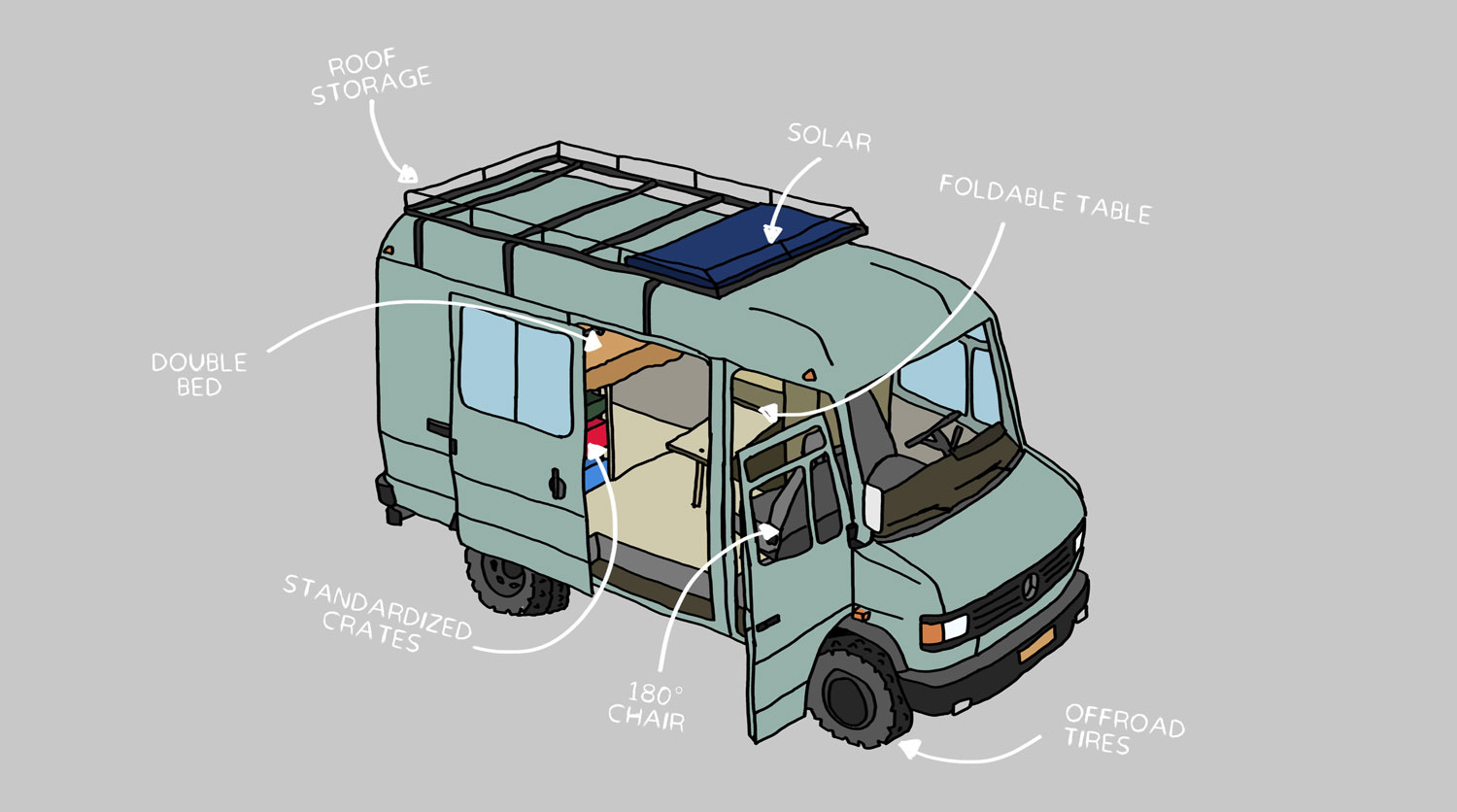
Get Started
The biggest challenge is figuring out which kind of Van and which size. This is a very personal choice. Are you tall? Do you have a lot of stuff? Are you willing to pay a lot in road taxes? etc. But besides this it's also good to take into account where you will use it and how much you are driving. Because there are a few different ways to go about this
| Van | Type | Pro | Con |
|---|---|---|---|
 | Old & Refurbished Save materials | - Reuse materials - More durable - Easier to repair | - More taxes - Fuel intense - Less comfortable |
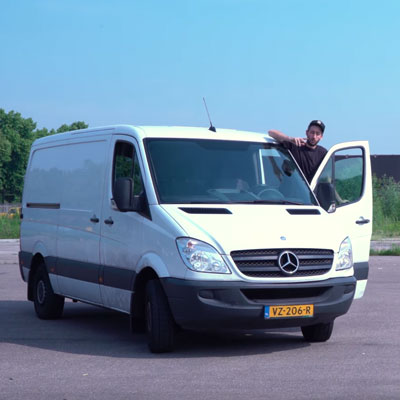 | New & Efficient Save fuel | - Comfortable - Less noise - Easier to find - Less fuel usage | - Support consumption - Harder to repair |
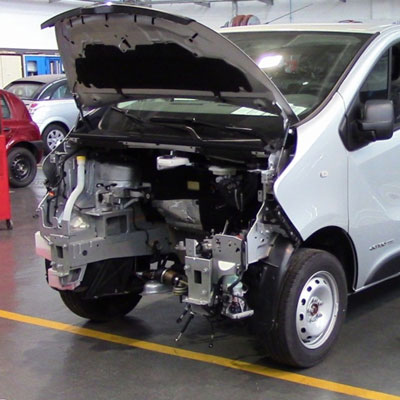 | Old & Converted Save fuel & material | - Best of both worlds - Reuse materials - Low on fuel | - Expensive - Very new technology |
Choose your type of Van:
Old & Refurbished: If you are not going to drive a lot and will spend most of the time in one place this is a good option. You reduce the consumption of new cars and use existing resources as long as you can. But if you will drive a lot, the other options make more sense.
New & Efficient: If you plan to still drive a lot with the van it makes more sense to buy a more efficient newer model or even electric if available. This saves a lot of fossil fuels being burned on a regular basis.
Old & Converted: This is an exciting method, take an old Van with all it's materials and only replace the parts that are outdated (engine and fuel) and swap this out with a more efficient technologies like electricity. However you still need to get new batteries, motors and converters and it will take a lot of your resources to implement. Probably only really worth it if you plan to drive a lot.
Find a (service) Van
It's not hard to find a van, you can find them at your local dealer or on the internet. However one source worth mentioning is old Government service trucks. From the army, police, fire department etc. They usually have driven very little kilometres, spend most of their time inside and have very good maintenance. And governments tend to pick car brands which are durable (saves them effort on maintenance). So they use models which are common or that have a lot of spare parts available. So they are easier to repair and maintain. They are not always easy to find, but are worth giving them a try.
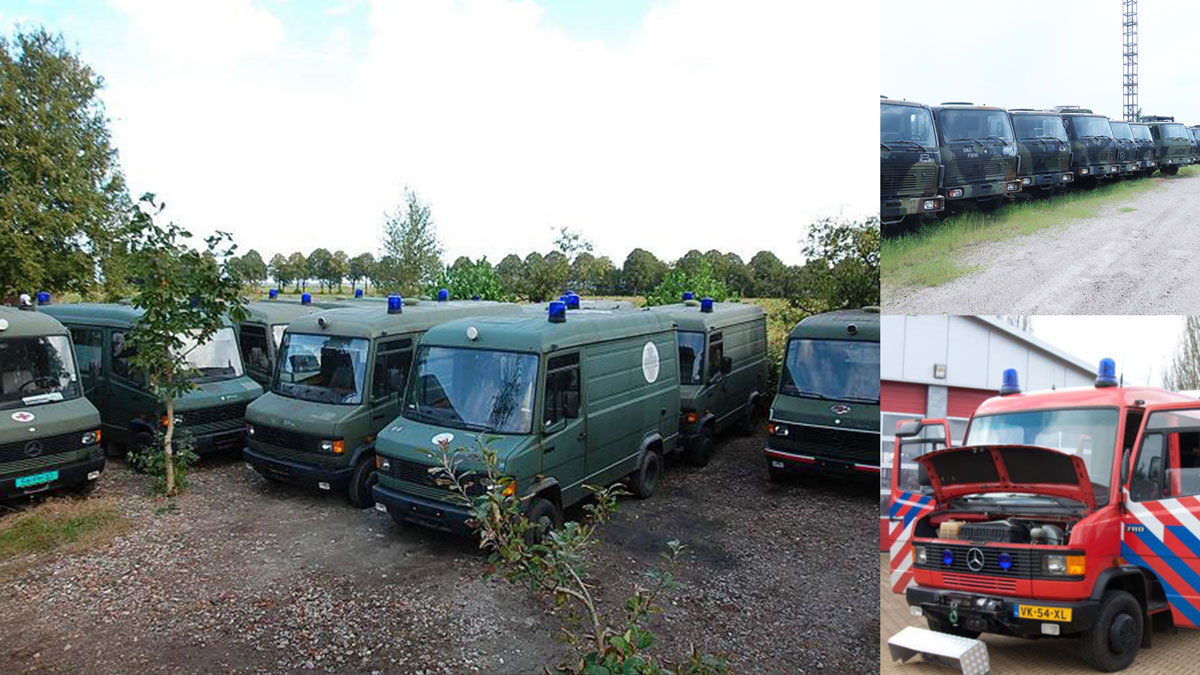
Turn it into a home
This is the fun part, turning your van into a little house. There are many different ways to do this, many videos and instagram accounts. We won't go too much in depth here but advise to just browse around on the web #vanlife. So many clever simple, smart solutions to make your life more efficient and comfortable. But it is also easy to get lost in this, thinking you need it all. We advise to start living in there fast, camp out a few weekends in your parking space. See what works for you and what you care about before you end up building a lot of things you don't really need.
⭐️ Tip: It's easy to get lost in what you think you need. Best is to start living in it and adapt as you go.
Be off grid
Being "off grid" is a great benefit for your house. Specially when using it as a temporary house in your community. Technically you are not really off grid, because you will still use the other shared infrastructure from the land (toilet, shower kitchen etc). So let's call it an off grid bedroom. The upside of this is you can park it anywhere on your land and not have to worry about hooking it up to electricity and dragging cables around. Charge your electronics, read a book at night, put on some music. It gives you more freedom and nowadays it's relatively easy to do using solar.
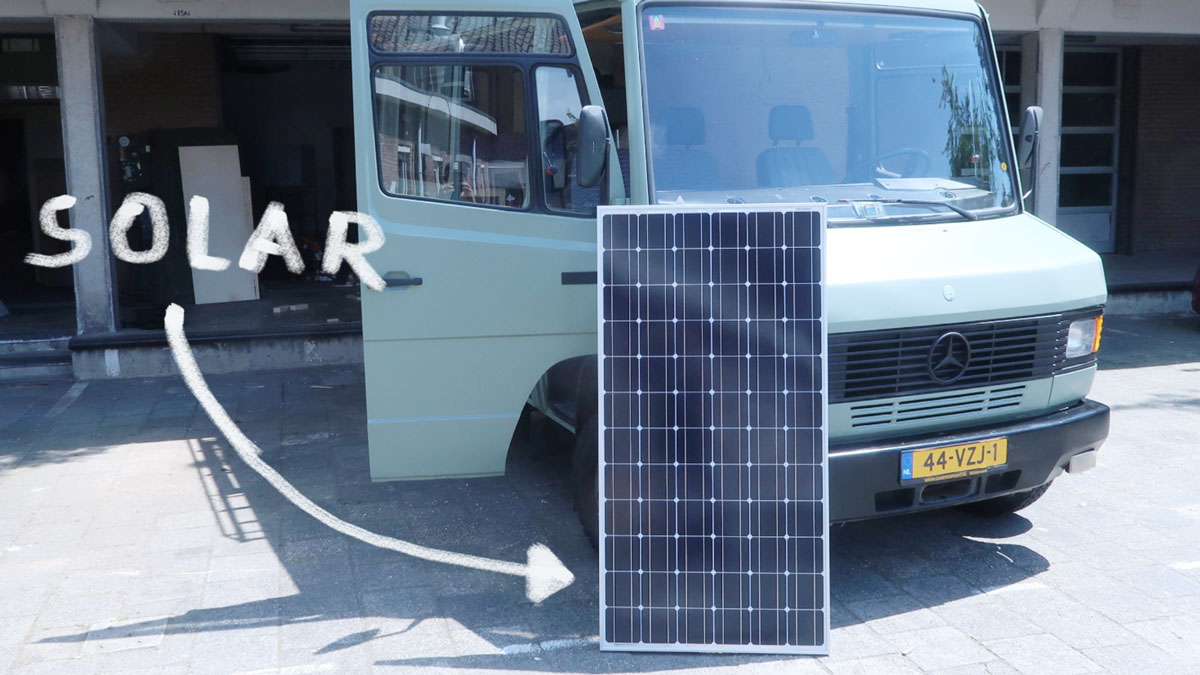
Wiring Electronics
Solar panels work on low voltage, so do cars. So this makes it quite friendly to work with. There are a few things to take into account though:
- Because you work with low voltage, you have a higher amperage. So for energy intense connections you need thicker cables than the usual ones you find in your 230V house.
- Having a separate "household battery" is useful. This way you can drain your household battery but still be able to drive away on your car battery.
- Most cars are running on 12 Volts, however bigger vans or trucks run on 24 Volts. For instance this army van is 24 Volts.
- You can setup your solar system on 12V and 24V. Using the same voltage as your vehicle has the upside that you could also hook it up to your alternator. So you can also charge everything while you drive (without converting it again).
Components in this van
| Item | Type of item | Extra information |
|---|---|---|
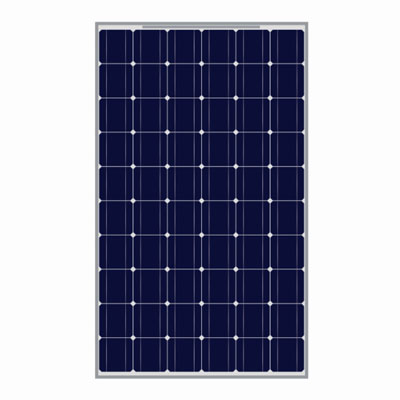 | Solar Panel 210 Wp 1580x808×35mm | The solar panel is mounted on the roof. It provides a 44,36V open clamping voltage. In order to regulate the output of a panel and not kill your battery you need a controller. |
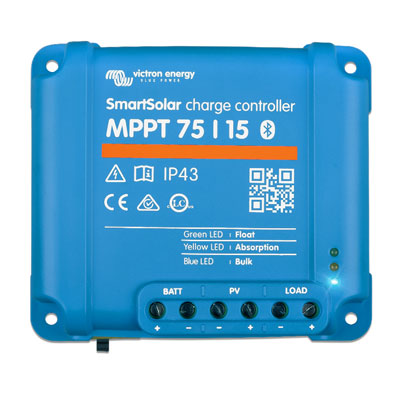 | Charge Controller MPPT 75/15 14/24V | A charge controller gathers energy from your solar panel. They come in many shapes and sizes. Higher quality means you maximise your energy-harvest and extend your battery life. |
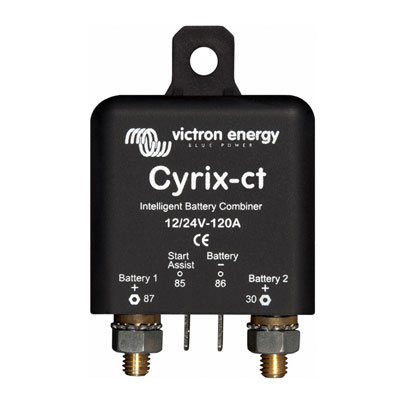 | Intelligent relais Cyrix-ct 12/24V-120A | This relais makes sure your alternator charges your car battery first, then the household. And it prevents the household battery to take power from the car battery. |
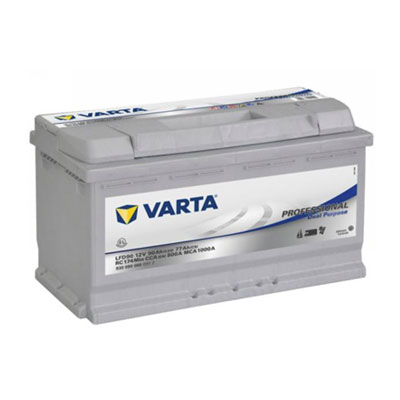 | Battery 12V 90Ah 2 x in series | These batteries are specifically for caravans/campers. Having a minimal self-discharge and work well in low energy demands. |
Need inspiration?
Have a look at Mattia's van featured in Update video #5. It's an old German Post office Van. In the update he gives a tour, explains his best features and problems he had with it. Fun fact, his van is also in the original Project Kamp Drawing :)
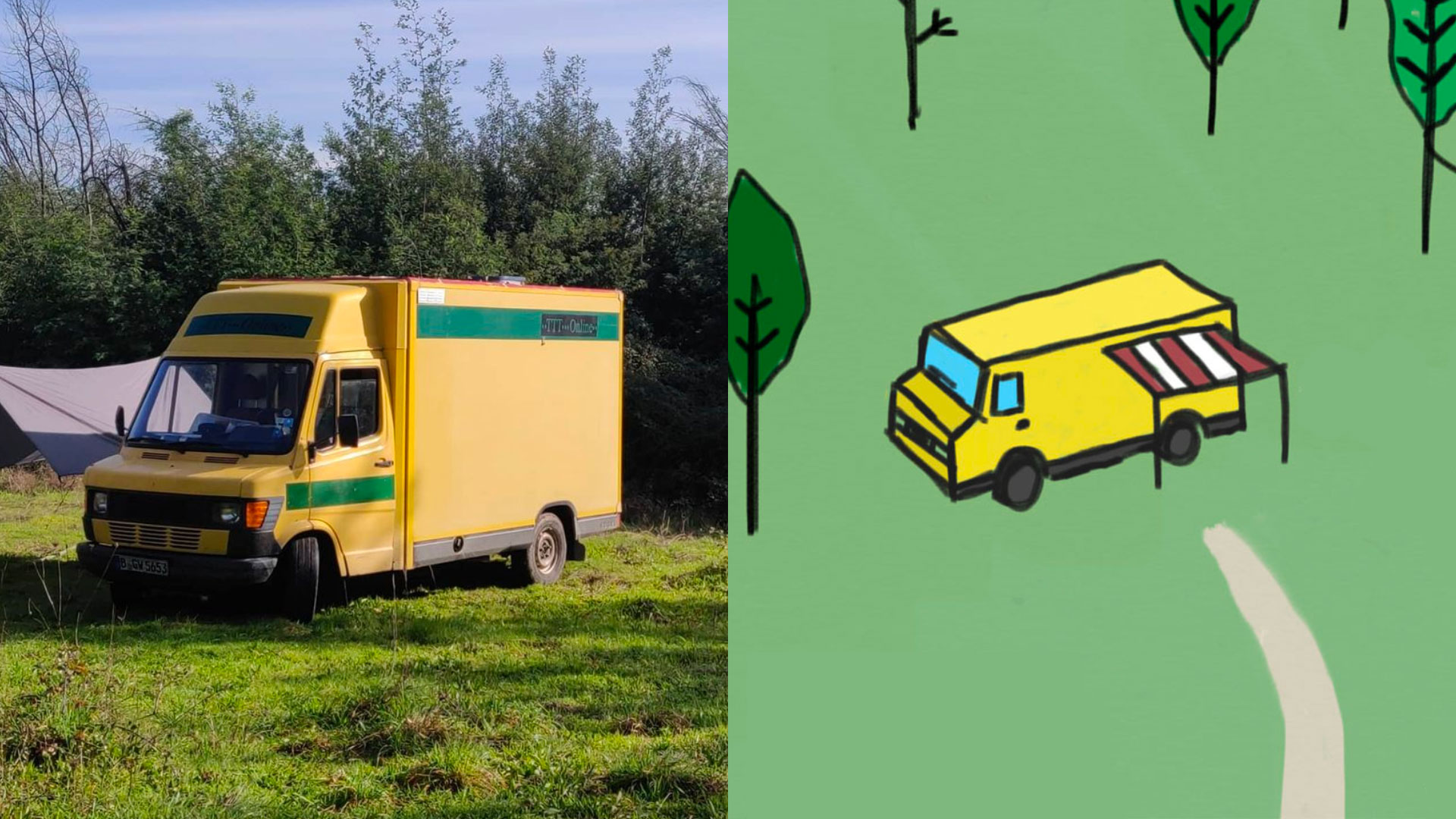
💬 If at this point you have any questions, want to meet like minded people or want to share an idea you have for your Van 👉 visit our community chat on Discord